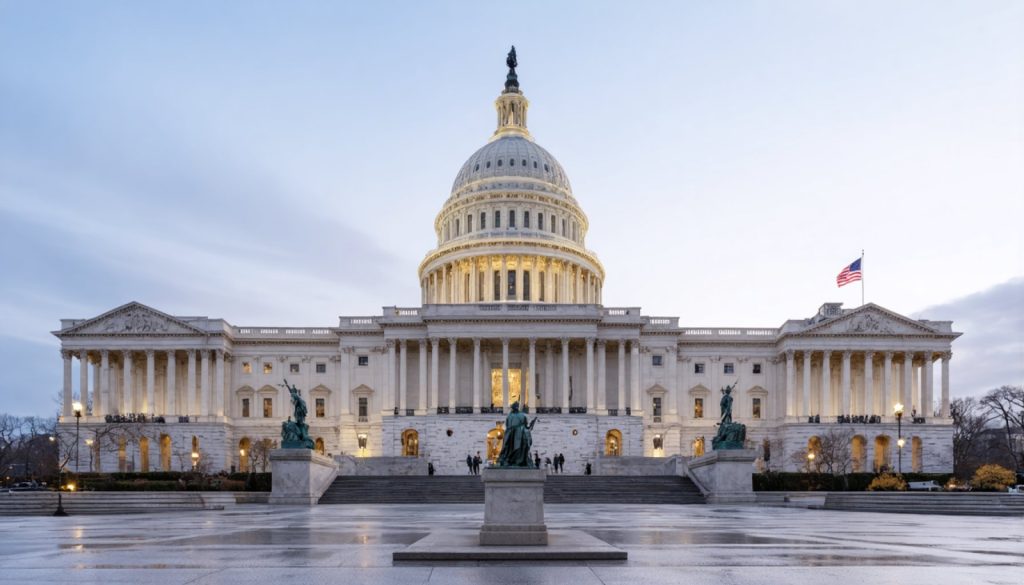
- Senate Bill 686 aims to redistribute advertising revenue from tech giants to local journalism, potentially revitalizing community newsrooms.
- The bill compels tech companies to share profits when local news articles are used, supporting the financial stability of local journalists.
- Proponents believe the legislation could lead to a vibrant and economically independent local press, essential for democracy.
- Critics express concerns about possible negative impacts on innovation and changes to tech algorithms affecting news distribution.
- The legislation underscores the crucial role of local journalism in informing the public and supporting democratic discourse.
Consider a world where local journalists, tirelessly chasing leads and capturing stories, could finally receive their fair share of the wealth generated from their hard work. This tantalizing possibility takes center stage with a new legislative push, poised to reshape the very fabric of how tech giants and news outlets interact. Enter Senate Bill 686, a bold proposal with the potential to redirect the digital dollar flow.
Picture this: every time a tech company shares a local news article, the accompanying advertising revenue—long siphoned into the deep pockets of digital titans—could soon rejuvenate local journalism ecosystems. By compelling tech firms to share their ad profits, the bill aims to fuel the survival and revival of community journalism, battered by relentless economic pressures.
This concept is not without its ground-breaking qualities. Imagine the vibrancy local reporting could regain if liberated from the shadow of financial uncertainty. Small-town newsrooms could flourish, bolstered by new revenue streams, creating a tapestry of diverse voices and stories essential for democratic discourse.
As the bill wends its way through the corridors of power, echoes of debate intensify. Supporters envision a reinvigorated press, vibrant and tenacious, no longer shackled by economic constraints. Critics, however, warn of unintended consequences, fearing an erosion of innovation as tech companies might recalibrate their sharing algorithms, altering the news landscape in unforeseen ways.
Nevertheless, the essence of this legislative venture is clear: a recognition of the invaluable role played by local journalism in a democratic society and a concerted effort to ensure that those who craft the narratives of our lives can sustain theirs.
The key takeaway? Senate Bill 686 could reshape the economic symbiosis between tech and media. It charts a course where community stories not only inform and inspire but also thrive, underscoring the enduring truth that a well-informed public is the cornerstone of a vibrant democracy.
How Senate Bill 686 Could Transform Local Journalism and Challenge Tech Giants
Overview
Senate Bill 686 presents a potentially transformative approach to the relationship between technology companies and local journalism. As digital platforms continue to dominate the media landscape, this legislation aims to reallocate advertising revenue to support local news outlets, which are pivotal to sustaining democratic discourse at the community level.
Key Features and Expectations
1. Revenue Sharing: The bill proposes that tech giants, like Google and Facebook, share a portion of their advertising profits with local news organizations when these platforms use their content. This mechanism seeks to offset the economic pressures faced by traditional journalism.
2. Empowering Local Journalists: By fostering new revenue streams, the bill could empower small-town newsrooms, ensuring diverse voices and coverage integral to informed citizenship.
3. Innovation vs. Stability: While providing financial stability, there are concerns the bill could stifle innovation. Tech companies might adjust their algorithms to reduce shared content, affecting how news is distributed.
Insights & Predictions
– Potential Economic Impact: If enacted, the bill might halt the decline of local journalism by making it economically viable, increasing the number of reporters and resources dedicated to covering community issues.
– Industrial Response: Tech companies may push back, claiming the financial burden could impinge on their operations, potentially leading to increased subscription fees for users and changes in content-sharing practices.
– Global Implications: Similar initiatives could emerge globally, prompting other countries to follow suit in support of their local news sectors.
Pros and Cons Overview
– Pros:
– Reinforces the financial foundation of local journalism.
– Ensures coverage of under-reported areas and issues.
– Promotes a more informed, engaged community.
– Cons:
– Reduced content sharing by tech companies might limit audience reach.
– The tech industry might lobby against the bill, delaying its passage and implementation.
– Alterations in revenue models could unintentionally impact the user experience on digital platforms.
Actionable Recommendations
– For Journalists: Prepare to negotiate and collaborate with tech platforms to maximize revenue potential.
– For Tech Companies: Engage proactively with lawmakers and media to balance financial models with content-sharing algorithms.
– For Communities: Support local news by subscribing and engaging with local reporting, fostering a robust civic environment.
Related Links
Discover more about local journalism and tech innovations on Nieman Lab.
Conclusion
Senate Bill 686 could dramatically reshape the local journalism landscape, presenting both challenges and opportunities. As the discourse continues, the focus remains on crafting sustainable solutions that support a vibrant, well-informed public sphere.



